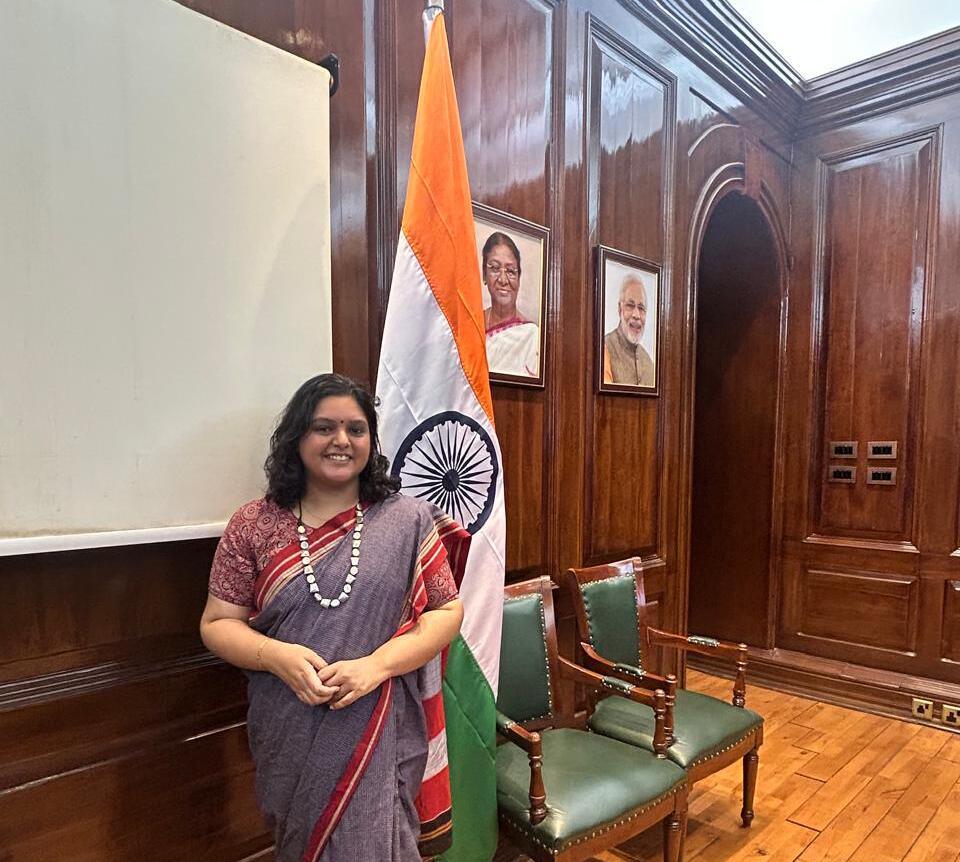This interview has been published by Anshi Mudgal and The SuperLawyer Team

What motivated you to pursue the LL.M. in Comparative and International Dispute Resolution at Queen Mary University?
While I was very satisfied with my Cornell experience, my LLM at Cornell was a general program. After working for a few years in the field of international dispute resolution, I felt like I wanted to do a specialized LLM in the field. I had by then worked on construction and energy related arbitrations, and felt the need to have more specialized knowledge. At QMUL, I took courses like ‘International Arbitration and Energy’ and ‘International Construction Contracts and Dispute Resolution’, which were specialized courses designed to equip one to work on high-stake arbitrations.
Interestingly, I had also, at that point, never taken a full- fledged course on investor-state arbitration. I describe it as interesting, because by then I had already worked on four investor-state cases, written articles and my Cornell thesis on the subject. While working on two high profile investor- state arbitrations, I realised that at times I didn’t know some basics because most of my knowledge was self-taught. Hence, I felt the need to go back to school.
How did your experiences at QMUL and at Cornell Law School together shape your understanding of international arbitration and dispute resolution?
My LLM experiences not only taught me the law of two major jurisdictions but also taught me their distinct approaches to dispute resolution, legal drafting and style of argumentation. Together, these experiences gave me a comparative lens and also trained me to adapt my drafting, argumentation, and advocacy to different styles- an essential skill when working in cross-border disputes involving counsel and parties from diverse jurisdictions.
As a dual-qualified legal professional in India and England & Wales, how has this cross-jurisdictional qualification helped you?
I believe being dual-qualified in India and England & Wales has helped me be taken more seriously as an international lawyer. Passing the two SQE exams is no easy feat and really trains you on effective written and oral advocacy. This is something law firms across the world acknowledge. In my personal experience, my profile was assessed more seriously by international law firms after I became dual-qualified. Further, with a qualification from England & Wales, you become eligible to work on cases across common law jurisdictions, significantly broadening the scope of your work.
What were some pivotal experiences that helped lay the foundation for your arbitration career?
A pivotal experience that helped lay the foundation for my arbitration career was in my second year- I had participated in a moot called Frankfurt Investment Arbitration Moot Court Competition. I remember making my submissions during the quarter final rounds and thinking- I could do this for the rest of my life! From that moment onwards, I tried everything in my capacity to be in the field, which led me to different countries and a wide range of work. I believe each experience of mine, be it an internship or a summer course, added something to my journey and led me down a certain path. For example, it is because I had participated in the Frankfurt Investment Arbitration Moot that I was given investor-state work in my internships. It is because I did investor-state work in those internships that I was hired by law firms to work on investor-state cases. And it is because I worked on investor-state cases that I got hired to work on bilateral investment treaty negotiations. Each step helped lay the foundation for the next step.
You’ve handled arbitration matters under UNCITRAL and ICSID rules across sectors like energy, banking, and construction. How do you approach disputes involving sovereign states, and what are the key considerations in such cases specially in the energy sector?
I have mostly worked on disputes where I represented a State. When developing arguments or defences for a State, it is important to keep in mind that, unlike private entities, decisions by a State are policy-oriented. It is important that you not only understand the policy perspective to the dispute but to effectively convey it in your pleadings.
As for disputes in the energy sector, it is important to remember that energy sector disputes are usually complex and involve a lot of technical jargon. However, that is precisely what makes it interesting to work on these cases. In my opinion, a key consideration while working on such cases is to make an active attempt to understand, to the extent possible, the technical aspects involved. I believe that greatly helps with legal part of the case as well.
Having studied and worked in various legal systems including India, the U.K., U.S., France, Germany, South Korea, and Hong Kong what differences do you observe and which system do you find most effective in dispute resolution and ADR?
Studying and working in so many different jurisdictions has been an invaluable experience. I now have a better understanding of cultural and social nuances, which helps me be a better lawyer. There are several differences I have observed, particularly, I have found the approaches of common law jurisdictions and civil law jurisdictions distinct. While I wouldn’t say that one system is inherently superior to the other, I have observed notable efficiency in dispute management in jurisdictions such as South Korea, Hong Kong, and Germany. These are models from which our own system could draw valuable lessons.
You’ve worked across major arbitration hubs such as Hong Kong, Frankfurt, and Seoul. How did you identify and secure these opportunities, and what advice would you offer to students and young lawyers aspiring to pursue an international legal career?
There is no easy path to pursue an international legal career. It involves a lot of luck and a lot of trying. My advice to young lawyers and students is to be brave and slightly shameless and take risks in their initial years. It’s the best time to take risks. All the places I worked, I applied to these places mostly through unsolicited emails. I didn’t have the courage to approach people in networking events for internships, but I would recommend it. Don’t be afraid of facing a rejection or worried that you will appear desperate. As far as you don’t harass someone with persistent emails, it is totally fine to write to someone unsolicited. They may reply or they may not, but it is your job to try. Also, do not hold back from applying for a vacancy because you don’t meet all the criteria. Recruitment processes have a huge element of luck. I have seen people with many years of work experience struggle to land something and I have also seen people with no work experience get a job offer. You just never know. Hence, don’t ever reject yourself by not even trying.
With the evolving landscape of international arbitration, how do you see its future shaping up in India? What steps do you take to stay abreast of legal developments and global trends in this field?
The arbitration law in India is ever evolving, with each amendment to the law inculcating the real-time issues arbitration lawyers face. Over the past decade, legislative and judicial developments have demonstrated a clear intent to make India a more arbitration-friendly jurisdiction. We are also seeing more Indian lawyers returning to India after gaining experience with international law firms, and bringing with them global best practices in arbitration. This, coupled with the growing business links between India and foreign counter-parts, makes me very positive about the future of international arbitration in India.
I regularly follow newsletters and forums that track recent developments, emerging trends, and case law to keep myself abreast with legal developments. I also find following people working in the field on LinkedIn to be quite useful. Academicians and practitioners in the field regularly post either legal developments or their own writings on their LinkedIn feed. This is an easy way to keep yourself updated.
Given the demands of a high-intensity legal career, how do you maintain a healthy work-life balance? Are there any personal interests or activities that help you unwind and recharge?
I am very grateful for the fact that throughout my career I have gotten to do interesting and cutting-edge work. However, the drawback of a high intensity legal career and doing cutting-edge work is that maintaining a healthy work-life balance becomes incredibly hard. One way I try to maintain my work-life balance is trying as much as possible to take vacations and not working on the weekends. During a working day, I recharge by making sure I get adequate sleep every night. No matter how busy my schedule is, I try my level best to get enough sleep. I truly believe it is really important that all of us put in active effort into eating and sleeping well, no matter our workload. It’s an everyday battle where you win some days and lose some days, but it’s important to actively create that boundary.
Get in touch with Soma Hegdekatte –



